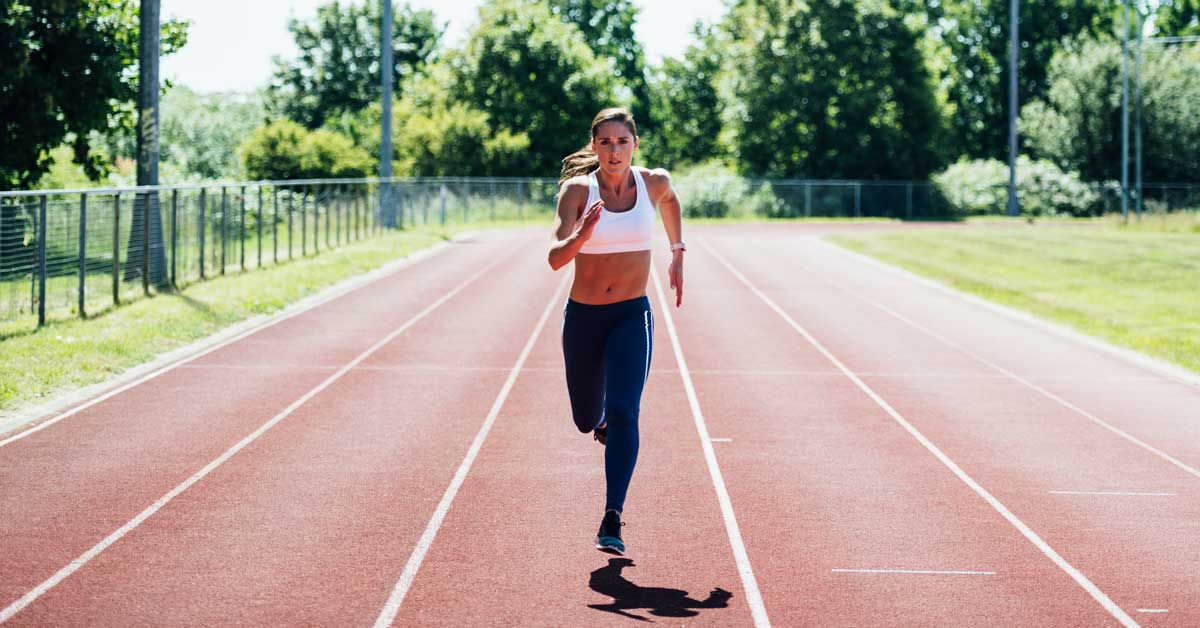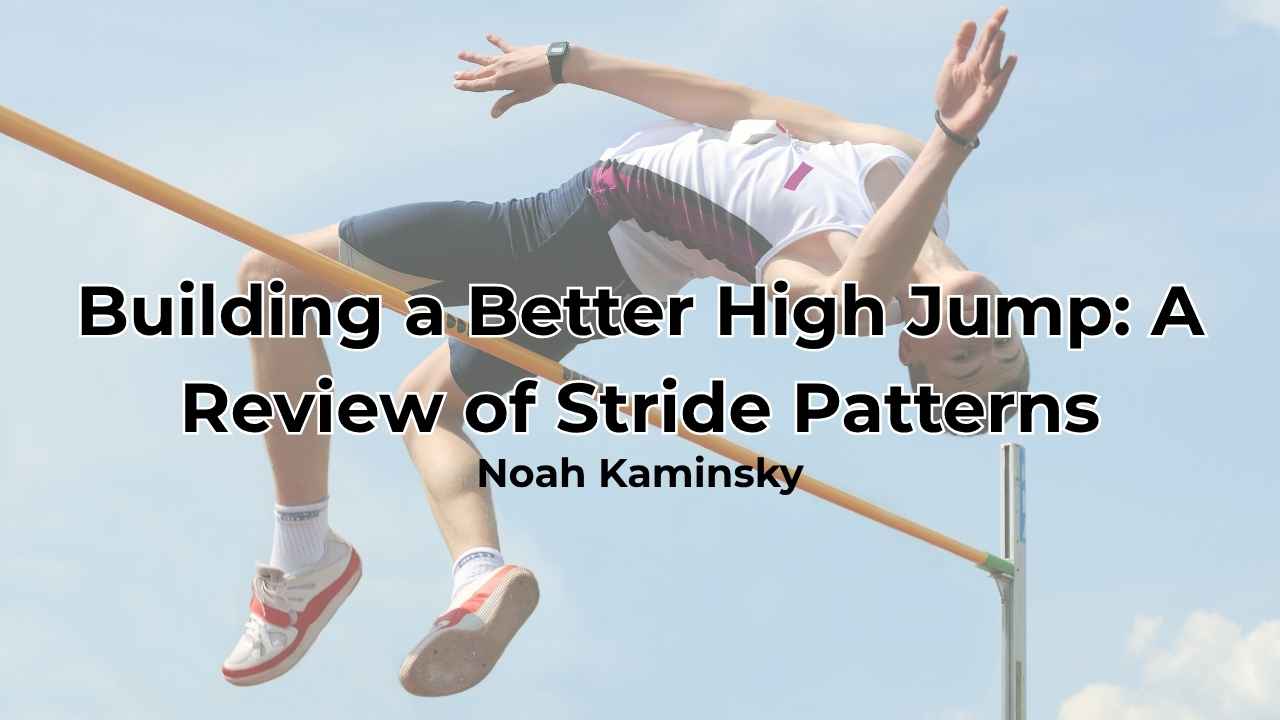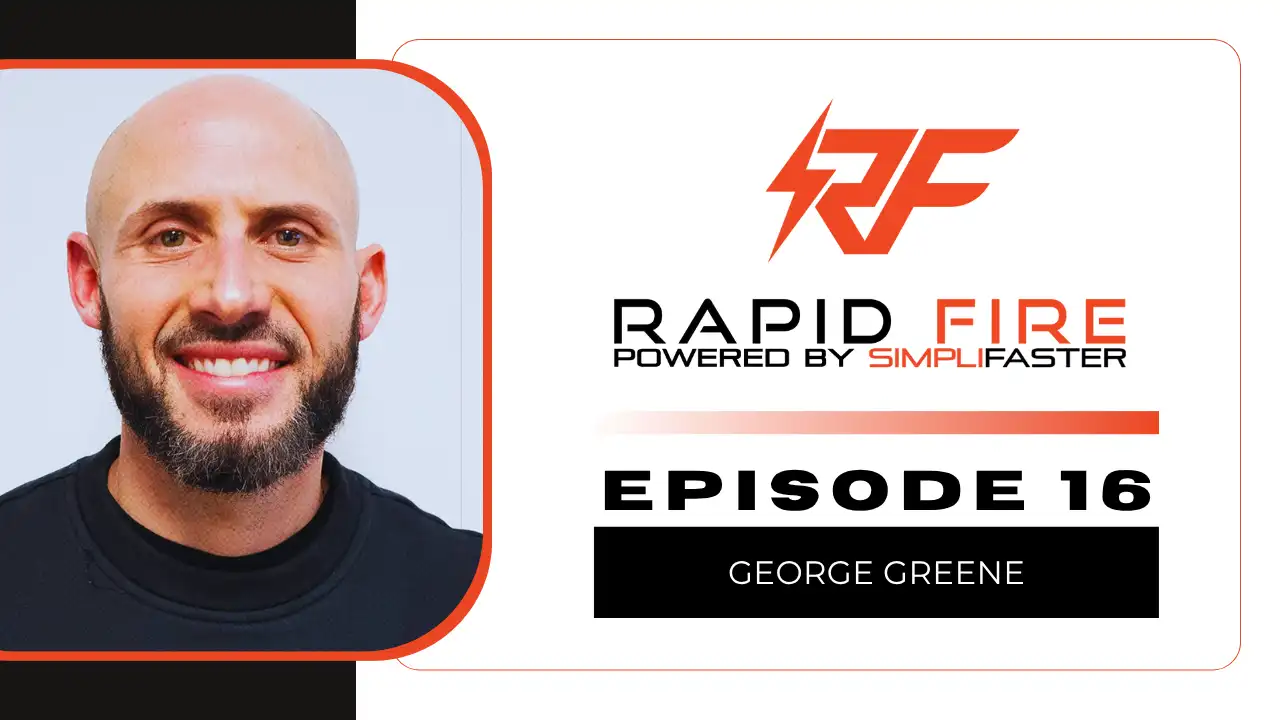Athletes’ performance on the day of competition is the apex of their preparation process, with outcomes that can influence their overall career satisfaction. For example, I have a World Championships medal in the 4x100m relay, an achievement that is arguably the pinnacle of my career. Winning that medal was a combination of many things, including plenty of preparation and training—but all that would have been for nothing if, on the day of competition, my teammates and I were unable to perform to the best of our abilities.
Conversely, I don’t have an Olympic medal. On our day of competition in the games, I performed poorly and caused our relay team to be disqualified as a result of leaving early in a changeover. The line between success and failure in sport is a fine one, and failing to adequately prepare for peak performance on the day of competition can have significant repercussions.
The line between success and failure in sport is a fine one, and failing to adequately prepare for peak performance on the day of competition can have significant repercussions, says @craig100m. Share on XOver the last two decades, athletes and coaches have become increasingly aware of the importance of sports psychology, with many now understanding that elite performance is underpinned by a multitude of psychological factors and skills. Some research suggests that elite athletes achieve a zone of optimal functioning—or a flow state—during performance. It’s clear that on the day of competition, athletes must achieve an optimal psychological state to support performance; what is less clear, however, are the factors that contribute to this state.
Investigating the Optimal State for Peak Performance
A paper by this name published in 2014 provides interesting insights into this area and has the potential to help coaches and athletes optimize their performance in competition.
For the study, the authors Ruth Anderson, Stephanie J. Hanrahan, and Clifford J. Mallett recruited 17 elite athletes and six coaches from Australia who specialized in three Olympic sports: rowing, swimming, and diving. Between them, the athletes had 14 Olympic and 29 World Championships medals. The researchers conducted interviews with all participants, aiming to understand the psychological state that was required for peak performance and the key factors that contributed to reaching such a state.
The participants defined peak performance as “an episode of superior functioning resulting in optimal performance outcomes that exceeded prior standards of performance.” All interviewed athletes confirmed they experienced this during competition, and all of the athletes and coaches rated this psychological state as being crucial in driving elite performance. The participants identified the execution of this peak performance as automatic and unconscious; many athletes struggled to remember specific incidences from the competitions where peak psychological performance occurred, instead only remembering small snapshots.
This matches my personal experience. While I only have one or two snippets of memory from many of my best races, I can remember much more of my worst ones. Given that this peak performance is considered to be largely automatic, and not something that athletes can force themselves into, it’s important to understand some of the underlying contributing factors so that we can support its future occurrence.
Getting to Flow
In the study, athletes and coaches identified a multitude of underlying factors that contribute to peak performance. The most common of these factors were a strong physical and psychological preparation process paired with high levels of self-confidence. These factors are likely related, with self-confidence coming from having good levels of physical and psychological preparation. Other key themes included:
- The athlete’s mindset
- The ability to focus and control thoughts and emotions
- A rehearsal of the optimal psychological state in training
Athletes and coaches utilized a variety of psychological strategies to develop high levels of self-confidence and the performance mindset, including building a routine around competition, focusing on the task at hand, managing anxiety and stress, focusing on themselves as opposed to competitors, and having clear communication between the athlete and the coach.
Interestingly, the athletes identified that the peak psychological state occurred in the presence of nerves, demonstrating that elite athletes get nervous, too. They use these nerves to support performance.
Elite athletes get nervous, too. They use these nerves to support performance, says @craig100m. Share on XIn addition, just under half of the athletes and coaches stated that they were unable to recognize when they (or their athletes) were in the optimal psychological state, but that it often was recognizable after the fact. I think this is important to keep in mind; just because you might not “feel” in the optimal state doesn’t mean that you aren’t in it.
Recognizing the Obstacles
The authors also identified a number of key barriers to achieving the optimal psychological state, as identified by the athletes and coaches in this study. These barriers included poor preparation leading up to competition, with injury during this phase a contributing factor to not achieving the optimal psychological state. Other common factors included being distracted by the competition environment or being unable to adapt to it.
Within the competition itself, high levels of anxiety, overthinking, and a focus on competitors as opposed to the athlete themselves all served as barriers to optimized performance. This focusing aspect was further highlighted when it came to regaining the optimized psychological state if it was lost in competition; the ability to switch focus back to the present was rated as a crucial part of this process, as was letting go of what had happened previously in the competition.
Putting it into Practice
Overall, I think this study is really useful, giving us psychological insight into how elite athletes regulate their performance as well as an understanding of the factors that contribute to this state. There are also clear conclusions from this important paper that may be valuable for athletes and coaches when it comes to optimizing performance within competition:
- Have an established competition routine. In my career, I had a well-established competition-day routine that included a set playlist to listen to during warm-up and a well-rehearsed competition day nutritional strategy. A routine can be positive in a number of ways: it reduces the number of decisions that have to be made, which can reduce stress, anxiety, and psychological fatigue; the routine can provide confidence, because the athlete knows it has worked before; and, by being recognizable, the routine can assist in switching the athlete into “competition mode,” which includes the psychological state of optimized functioning.
- Recognize that everyone gets nervous. Pre-competition nerves are a good thing, because they allow for a physiological and psychological state that supports elite performance. Reframing pre-competition nerves as positive, and then harnessing them, is crucial for elite athletes.
- Control nerves and anxiety, and focus on ourselves instead of our competitors. Athletes should attempt to develop anxiety- and distraction-control techniques in training and low-level competitions ahead of major events.
- Live in the present. Support athletes being in-the-moment during competitions, allowing them to let go of what has gone before—positive or negative—and focus on the present. This skill becomes increasingly important if the optimal psychological state is lost for any reason during the course of the competition itself.
By supporting athletes in developing their skills and literacy in the above areas, we can better prepare them to perform to their best on the day of competition—a goal for all coaches to strive towards.
Since you’re here…
…we have a small favor to ask. More people are reading SimpliFaster than ever, and each week we bring you compelling content from coaches, sport scientists, and physiotherapists who are devoted to building better athletes. Please take a moment to share the articles on social media, engage the authors with questions and comments below, and link to articles when appropriate if you have a blog or participate on forums of related topics. — SF






